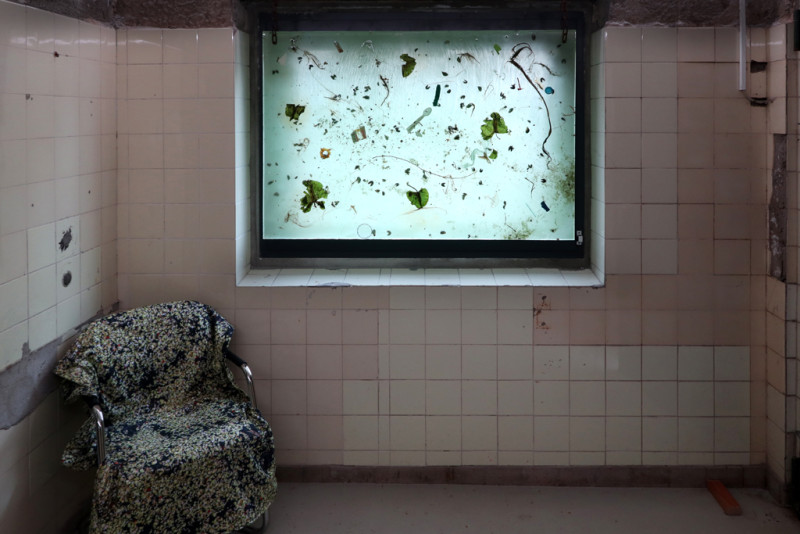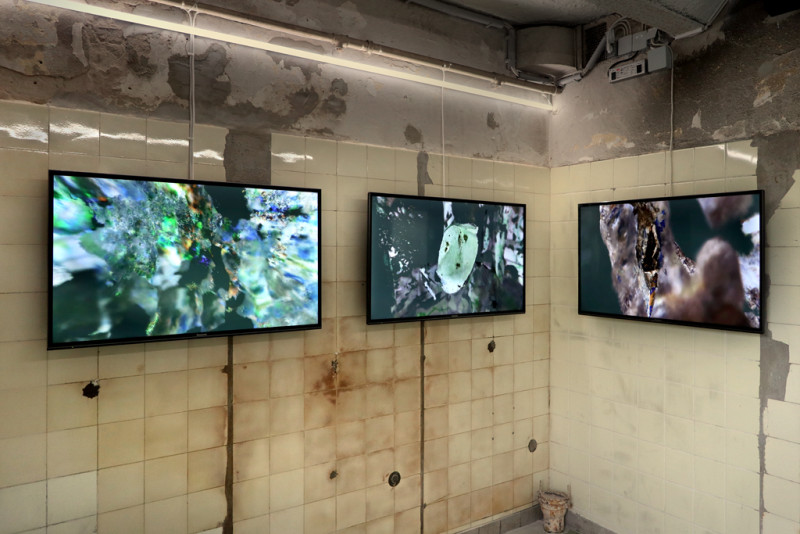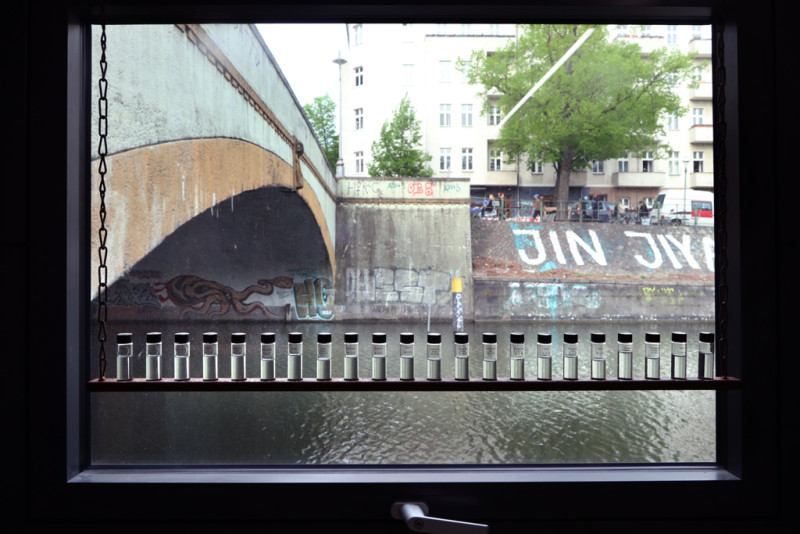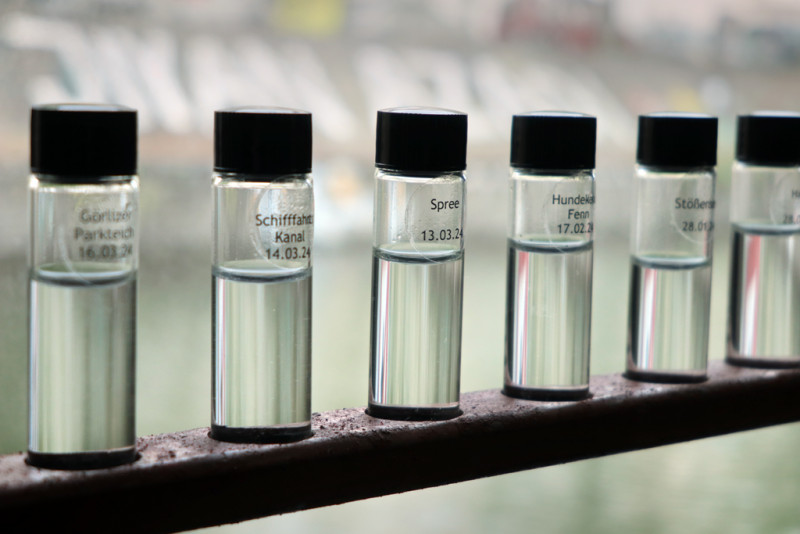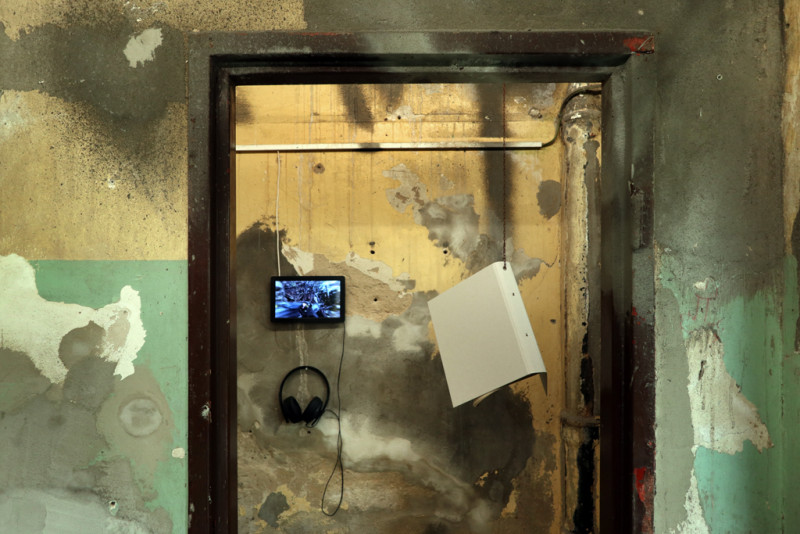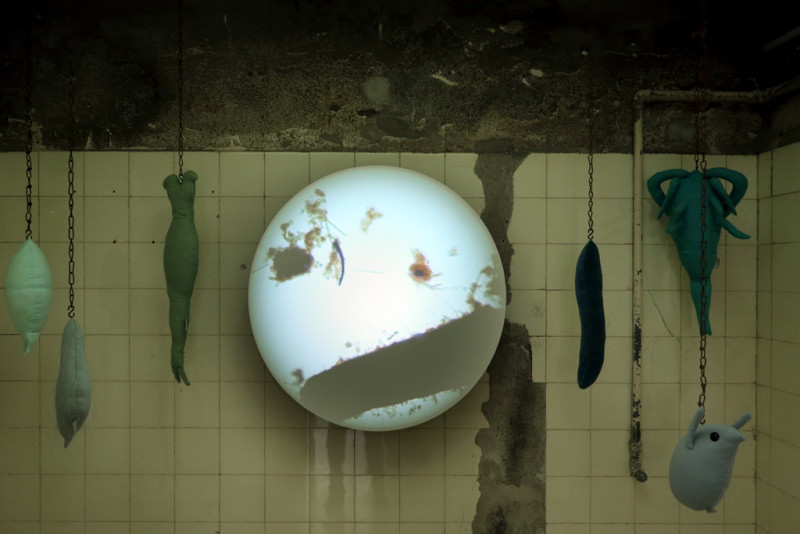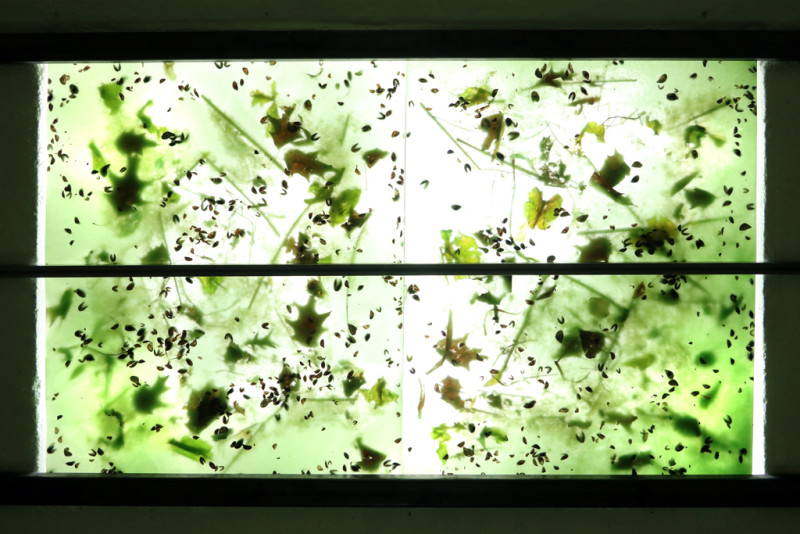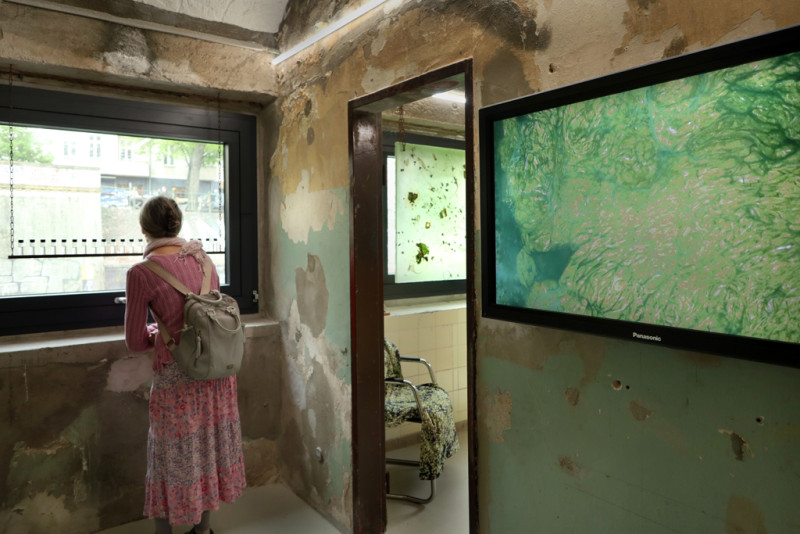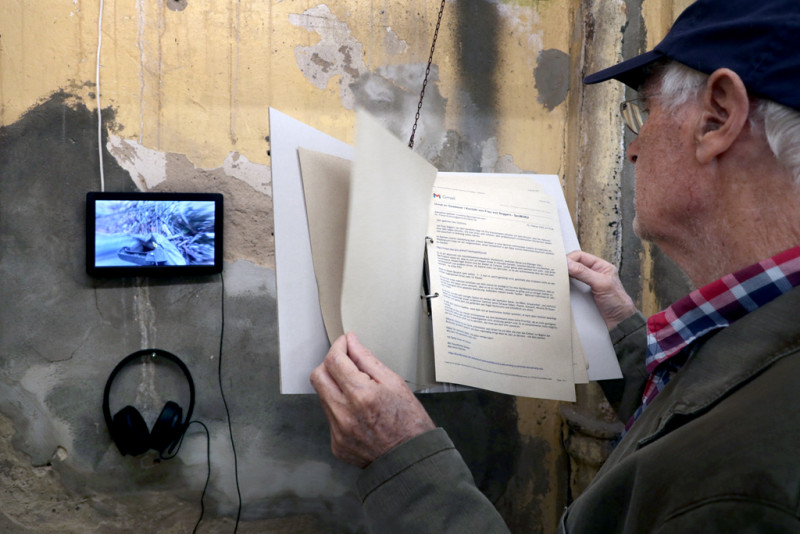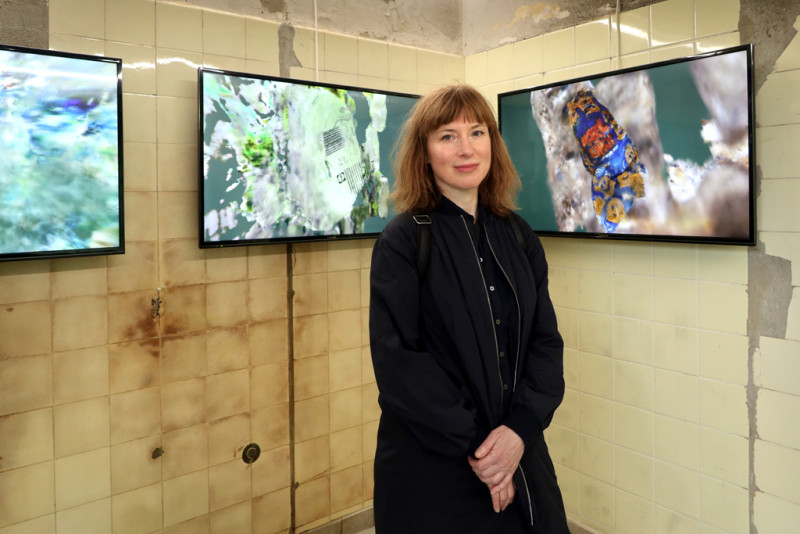Marcelina Wellmer’s exhibition You are among us, we are among you explores the meaning of the human relationship with urban waters within the conceptual framework of the nature-culture continuum. It visualizes multi-relational and multi-species aquatic-urban commons and offers a transformative experience by refreshing our kinship with watery multispecies. The title of the exhibition, taken from a poem by Guan Daosheng, a Yuan Dynasty calligrapher, emphasizes the inextricable relationship between humans and non-human animals.
The exhibition explores this interconnectedness in a specific watery world on a micro scale, and reflects on human responsibility as manifested on a macro scale in the visible anthropogenic changes in Berlin’s polluted urban waters.
Drawing on interdisciplinary scientific research and activist practices, the artist develops a fluid, enveloping narrative throughout the gallery space using techniques such as microscopic photography and video, underwater video, sound recording, and water data archiving to create moving and frozen images of watery constellations of critters, pollution, and technology. Water is represented as matter within us and as a material link between humans and non-humans, connecting living forms into a multi-species urban habitat. The exhibition offers an experience of precarious coexistence in a multi-species wet urban world.
Wellmer’s works not only visualize the connection to the world of the non-human others, but also activates our senses and perceptions, producing knowledge from marginalized, invisible underwater worlds. This knowledge can have a transformative effect on our understanding of ourselves and how we experience our embodiment in the urban world of water. The artist goes beyond mere documentation and incorporates playful speculative images with which we might begin to reimagine better shared worlds. Wellmer shows that the decentring of human agency requires not only a grounded critique, but also an alternative affective engagement.
With advisory support from the Leibniz Institute of Freshwater Ecology and Inland Fisheries (IGB), and the Berlin Foundation for Nature Conservation.

